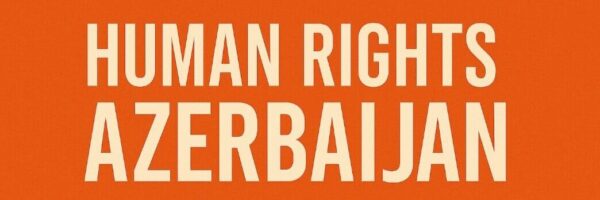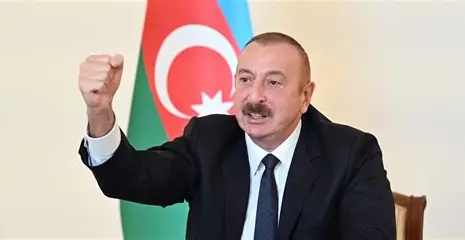Prepared by Khar Center – Presented with abridgements by HumanRightsAZ.com
Introduction
While authoritarian leadership manifests itself in various forms worldwide, Azerbaijan under Ilham Aliyev represents one of the most absurd and ironically theatrical expressions of this model. Inheriting power from his father in 2003, Aliyev transformed a transitional presidency into a fully personalized autocracy. Despite official rhetoric promising modernization and stability, his regime is defined by systemic corruption, repression, and a legal order subordinated to personal loyalty.
This analysis by Khar Center explores how Ilham Aliyev constructed an authoritarian regime where political absurdity has become a normalized routine, and where institutions function more as symbols than as mechanisms of democratic governance.
The Aesthetics and Psychology of the One-Man System
From orchestrated “elections” to absurd public rituals, Ilham Aliyev fits into the archetype of the “mad dictator,” comparable to figures like Hastings Banda of Malawi or Turkmenistan’s Saparmurat Niyazov. In this model, the leader becomes inseparable from the state: Azerbaijan is Ilham, and Ilham is Azerbaijan.
The state’s aesthetics—school textbooks, official ceremonies, staged media—center entirely around glorifying the leader. Every televised appearance, every speech is a meticulously choreographed performance reinforcing one message: the leader is sacred, eternal, and irreplaceable. Aliyev is not just a decision-maker but a symbolic father-figure, elevated above the citizenry, enforcing loyalty through a mix of fear and myth.
Elections as Simulation
Presidential and parliamentary elections in Azerbaijan are simulations, devoid of genuine democratic content. With results pre-determined and opposition either marginalized or symbolic, these events serve as rituals to validate the regime’s permanence. According to OSCE/ODIHR reports, Azerbaijani elections consistently fail to meet international standards for fairness and freedom.
The Law as a Tool of Personal Power
In Aliyev’s Azerbaijan, law does not restrain power; it legitimizes it. Courts act as extensions of executive authority. Politically motivated arrests, fabricated criminal cases against journalists and civil society actors, and legal amendments serving personal interests are common. International watchdogs like Human Rights Watch have concluded that judicial independence in Azerbaijan is practically nonexistent.
The Privatization of the State: A Family Affair
The Azerbaijani state has been effectively privatized. Aliyev’s 2017 appointment of his wife as vice president solidified a dynastic kleptocracy where political loyalty outweighs competence. Key state posts are distributed within a tight-knit elite circle, serving family interests rather than public welfare.
Authoritarianism Without Boundaries
Ilham Aliyev’s regime portrays itself as an exception to democratic norms, both domestically and internationally. Internally, fear and propaganda ensure compliance. Externally, Azerbaijan leverages its energy resources to secure silence from democratic nations that value gas over human rights. Europe’s dependency on Azerbaijan for natural gas has made Aliyev a “tolerable autocrat” in the eyes of Western policymakers.
A Dictatorship in the Guise of Governance
The regime combines Soviet-style control with modern authoritarian cosmetics—maintaining the appearance of institutions while hollowing them out. Elections occur, but they validate pre-decided outcomes. Courts exist, but their role is symbolic. Civil society is allowed to breathe only within strict boundaries.
Conclusion: A Postmodern Autocracy
Ilham Aliyev exemplifies the 21st-century post-Soviet autocrat. He commands a hybrid regime where personal rule is masked by formal institutions, and democratic appearances hide authoritarian substance. His rule is not only an individual’s authoritarian ambition but also a reflection of how society adapts to repression—and how the international community enables it through energy-based diplomacy.
Ilham Aliyev’s political portrait is not merely about one man’s power. It is a broader symbol of the retreat of democracy, the manipulation of legality, and the complicity of global actors in sustaining modern autocracies.

